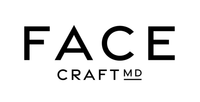When it comes to skincare, retinoids are a popular topic. They're known for their ability to fight acne, reduce wrinkles, and improve skin tone. But with terms like retinols, tretinoin, retinoid esters, and second-generation retinoids floating around, it can get confusing.
Let's break down these terms to help you make an informed decision about your skincare routine.
Retinoids are a class of compounds derived from Vitamin A. They have been used in skincare since the 1970s. Their main function is to regulate cell growth and encourage skin cells to behave in a healthier way.
Retinol is a type of retinoid that is commonly found in over-the-counter skincare products. It's less potent than some other forms of retinoids, which means it's less likely to cause irritation. However, this also means results may take longer to appear.
Tretinoin, also known as Retin-A, is a prescription-strength retinoid. It's more potent than retinol and is often used for more severe skin issues like acne or deep wrinkles. Because of its strength, it can cause more side effects, including redness, dryness, and peeling.
Retinoid esters are the mildest form of retinoids. They include retinyl palmitate, retinyl acetate, and retinyl linoleate. These are often found in products marketed for sensitive skin because they're less likely to cause irritation. However, they're also less effective than other forms of retinoids.
- Second Generation Retinoids
Second-generation retinoids include compounds like adapalene (Differin) and tazarotene. These are also prescription-strength, but they're designed to be less irritating than tretinoin. They're often used for acne treatment.
The type of retinoid you choose depends on your skin's needs and tolerance. If you're new to retinoids, it might be best to start with a milder form like a retinol or retinoid ester. If your skin needs more help, a prescription-strength retinoid like tretinoin or a second-generation retinoid might be more appropriate. Always consult with a physician before starting any new skincare regimen.






